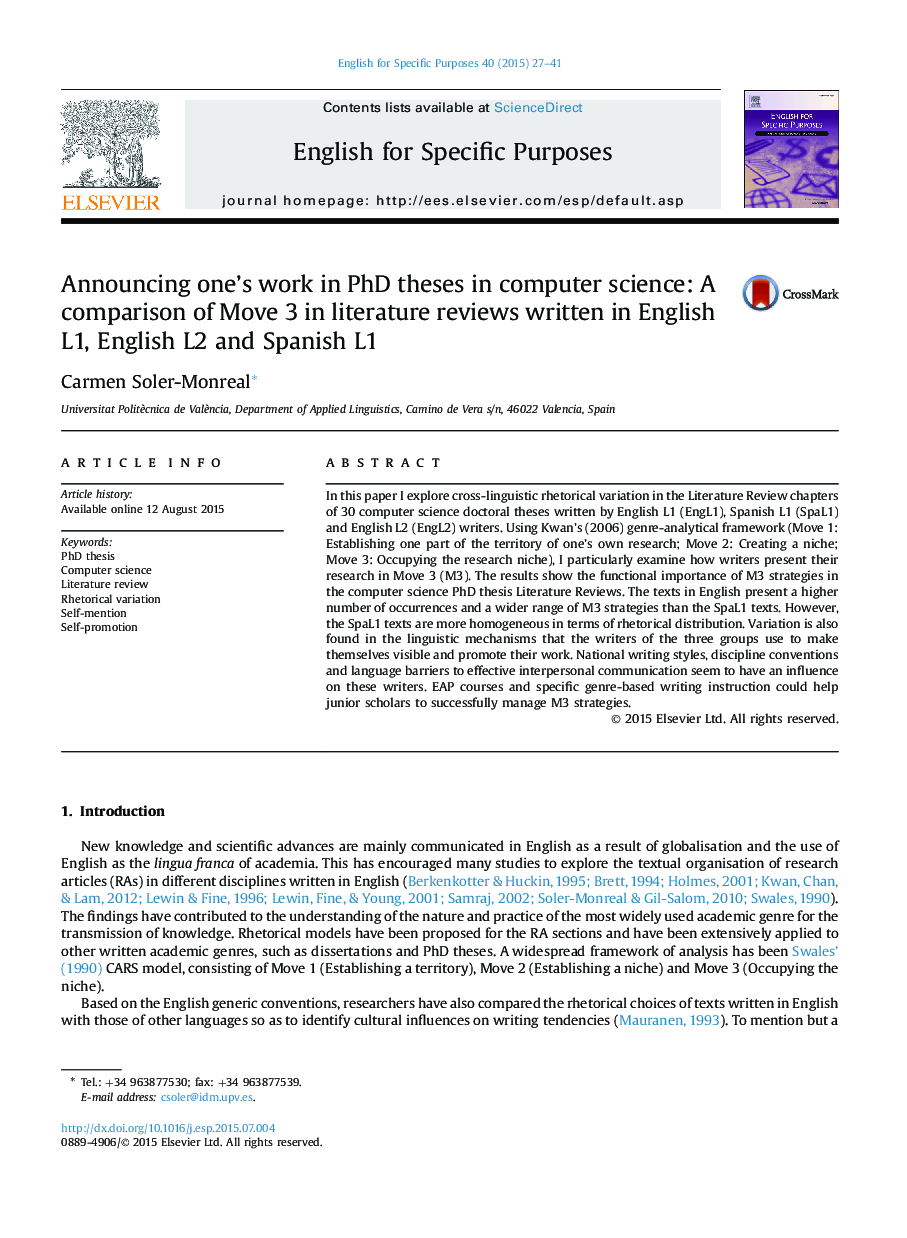| Article ID | Journal | Published Year | Pages | File Type |
|---|---|---|---|---|
| 355312 | English for Specific Purposes | 2015 | 15 Pages |
•There is variation in Move 3 in a corpus of English L1, English L2 and Spanish L1 computer science PhD literature reviews.•The texts in English contain more occurrences and a wider range of Move 3 strategies than the Spanish L1 texts.•The Spanish L1 texts are more homogeneous in terms of rhetorical distribution than the other two groups.•In the texts in English, the author's voice can be heard to a greater extent than is observed in the Spanish texts.•The Spanish L1 writers promote their work more than the English L2 writers, but less than the English L1 group.
In this paper I explore cross-linguistic rhetorical variation in the Literature Review chapters of 30 computer science doctoral theses written by English L1 (EngL1), Spanish L1 (SpaL1) and English L2 (EngL2) writers. Using Kwan's (2006) genre-analytical framework (Move 1: Establishing one part of the territory of one's own research; Move 2: Creating a niche; Move 3: Occupying the research niche), I particularly examine how writers present their research in Move 3 (M3). The results show the functional importance of M3 strategies in the computer science PhD thesis Literature Reviews. The texts in English present a higher number of occurrences and a wider range of M3 strategies than the SpaL1 texts. However, the SpaL1 texts are more homogeneous in terms of rhetorical distribution. Variation is also found in the linguistic mechanisms that the writers of the three groups use to make themselves visible and promote their work. National writing styles, discipline conventions and language barriers to effective interpersonal communication seem to have an influence on these writers. EAP courses and specific genre-based writing instruction could help junior scholars to successfully manage M3 strategies.
